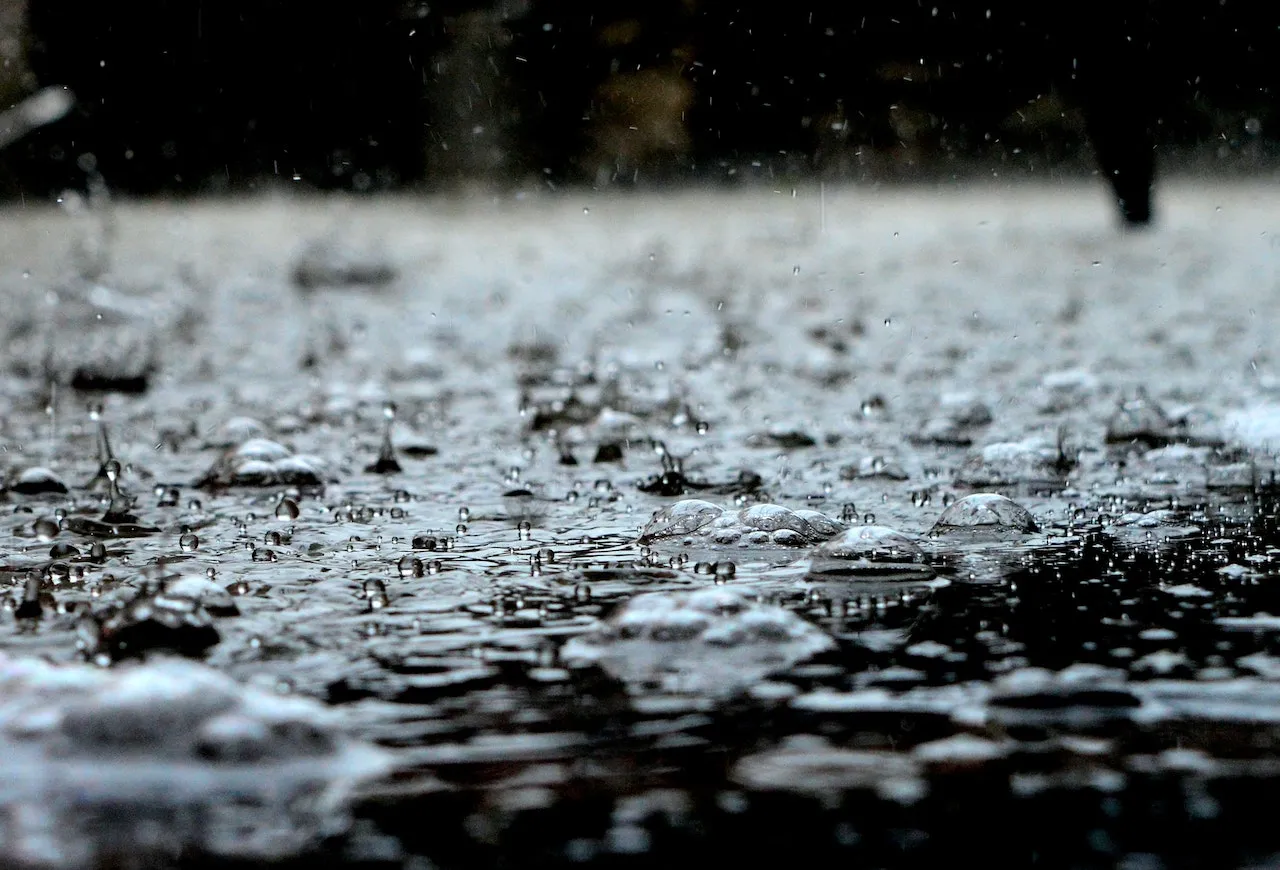Imagine a world where capturing the bounty of a rainstorm, a simple act of collecting water from the sky, was considered a crime. In parts of Colorado, this bizarre reality exists. While the concept of restricting rainwater collection might seem strange, it’s a controversial issue with a complex history and underlying factors that go beyond simply conserving water.

Image: www.eyeandpen.com
This article delves into the complex world of water rights in Colorado, exploring why collecting rainwater can be considered illegal in certain areas, the historical and legal framework behind this practice, and the potential consequences for individuals who choose to capture rainwater. We’ll also examine the ongoing debate surrounding this issue, exploring arguments for and against restricting rainwater collection and the potential environmental and societal implications.
The Roots of Water Rights: A Century-Old Legacy
To understand the legal complexities surrounding rainwater collection in Colorado, we need to delve into the history of water rights in this state. Colorado’s water law is grounded in the doctrine of prior appropriation, a legal framework established in the late 19th century during the era of westward expansion. This doctrine dictates that the first person to use water for a “beneficial use” has the right to continue using it. This “first-in-time, first-in-right” principle has shaped the way water is managed in Colorado for over a century.
Why Rainwater Collection Can Be Considered Illegal
While collecting rainwater for basic household use seems harmless, it can be considered illegal in Colorado if it interferes with someone else’s established water rights. This seemingly counterintuitive situation arises from the prior appropriation doctrine. When someone establishes a right to water for a specific purpose, like irrigation or municipal water supply, that right extends to any source of water, including rainwater.
A Conflict of Interests
Imagine a rancher who has a water right for irrigating their land. They rely on this water right to sustain their livestock and livelihood. If a neighbor starts collecting rainwater from their property, diverting water that would naturally flow into a stream or aquifer, it could potentially diminish the water available to the rancher. This conflict arises because the prior appropriation doctrine emphasizes allocating water based on established water rights, not on the source of the water.

Image: www.lovetoknow.com
The Argument for Rainwater Collection: A Growing Movement
The issue of rainwater collection isn’t just a legal debate; it’s also a reflection of evolving societal attitudes towards water conservation and resource management. In recent years, there’s been a growing movement advocating for the legalization and promotion of rainwater harvesting. Proponents of rainwater collection argue that it benefits both individuals and the environment in many ways:
- Water Conservation: Rainwater harvesting allows individuals to use a renewable source of water for non-potable uses like gardening, landscaping, and even flushing toilets, reducing reliance on municipal water supplies.
- Sustainability: Rainwater harvesting reduces reliance on groundwater pumping, which can have negative environmental impacts such as land subsidence and aquifer depletion.
- Financial Savings: Using rainwater can lead to lower water bills for homeowners and businesses, especially during times of drought or water scarcity.
The movement for rainwater harvesting is also spurred by concerns about the increasing frequency and severity of droughts in Colorado. As the climate changes, water scarcity is becoming a growing challenge, making water conservation a critical issue for both individuals and policymakers.
Navigating the Legal Landscape: Finding Solutions
Finding solutions to the legal complexities of rainwater collection requires a balanced approach that considers both traditional water rights and the need for water conservation. Some proposed solutions include:
- Statewide Legislation: Some advocates suggest amending Colorado’s water laws to explicitly allow for rainwater collection for non-potable uses, similar to laws in other states. This would provide clearer legal guidance and encourage rainwater harvesting while minimizing conflicts with existing water rights.
- Water Right Transfer: Another solution involves allowing water rights holders to “transfer” a portion of their water rights to individuals who wish to collect rainwater. This mechanism could create a market for water rights while encouraging water conservation.
- Education and Outreach: Raising awareness about the benefits and potential challenges of rainwater harvesting is crucial. This could involve educating homeowners about the legal landscape, providing guidance on how to collect rainwater responsibly, and fostering collaboration between water rights holders and individuals interested in rainwater harvesting.
Why Is It Illegal To Collect Rainwater In Colorado
https://youtube.com/watch?v=hgOFmesLO1w
The Future of Rainwater Collection: A Balancing Act
The legal debate surrounding rainwater collection in Colorado is likely to continue as the state grapples with the challenges of water scarcity and balancing traditional water rights with the need for more sustainable and efficient water management practices. The issue highlights the complexities of water resource management and the need for innovative solutions that meet the needs of both individuals and the environment.
Whether you’re a Colorado resident, a water rights holder, or simply an individual concerned about water conservation, understanding the legal complexities surrounding rainwater collection is crucial. By engaging in the ongoing dialogue, supporting water conservation initiatives, and advocating for solutions that promote both traditional water rights and sustainable practices, we can move towards a more water-wise future in Colorado and beyond.





